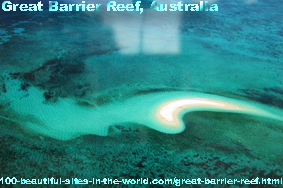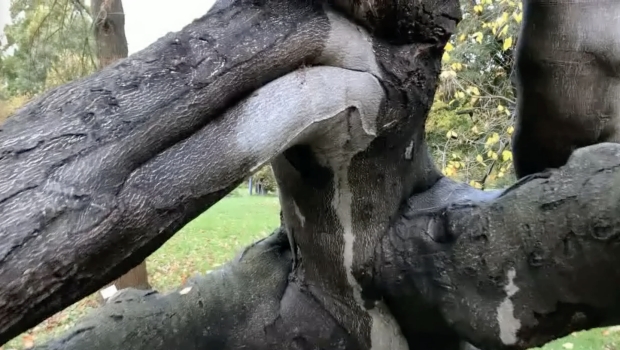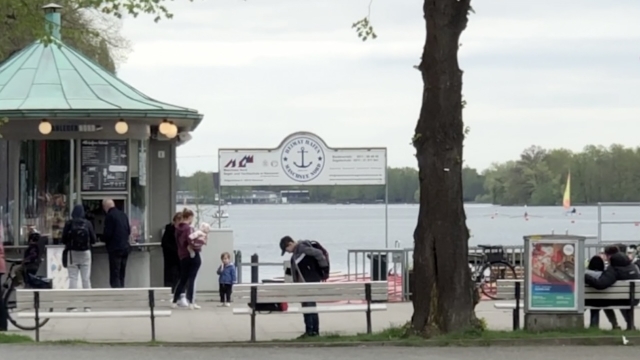Great Barrier Reef Appears Under Crystal Waters!
Well, here comes a threat of global warming that will destroy the entire Australian Great Barrier Reef by the end of the coming century. That, as predicted, will happen of course to the world's largest coral reef system only if the decision makers in the great industrial countries have not taken more than the Action 350.
Great Barrier Reef is so large that you can see it from the Moon.
It comprises 900 islands and over 2,900 reefs and thus covers 344,000 square kilometres and stretches across 2,600 kilometres off Australia's northeast coast off Queensland. It adds with Kakadu at the west another value of natural richness in Australia.
The following article is about this great coral reef and the affect of global warming on it. If you have more information, you are invited to write it in the form below and receive invaluable gifts for just doing so.

As the largest coral ecosystem in the world, it fills an area, which is much larger than Great Britain, Holland and Switzerland combined. It is on the list of the world's heritage sites for this importance of biodiversity since 1981.
Great Barrier Reef consists of around 400 different species of both hard and soft corals, which covers all the spectrum colours.
It is home to 1,500 different fish species and thousands of different shellfish, all of which depend on corals for their survival.
However, there are also dangerous animals and creatures like box jellyfish, sea snakes, sharks, blue-ringed octopus and crocodiles, although crocodiles live normally in rivers not in seas.
The increase in water temperature will result in higher acidification of the oceans and that will most likely have a devastating effect on the Great Barrier Reef.
If water temperature rises from 1.5º to 2º C, many of the corals, you can experience today in the area will become discoloured and eventually die. An increase of 3º C would result in total eradication of coral reefs.
It is estimated that global warming will raise the water temperature in the region with at least 2º C by 2100 and hence it is very likely that the Great Barrier Reef will disappear from the Earth's surface.
Visitors attracted by those beautiful sites attractions actually experience yacht sailing, swimming, scuba diving, snorkelling, fishing, enjoying crystal waters, helicopter flights, marine experiences and other beach activities.
Some of them can take to the Great Barrier Reef from the nearest Port Douglas.
The greatest islands of the Great Barrier Reef are Hinchinbrook Island, Hamilton Island, Frankland Islands, Fraser Island, Dunk Island, Bedarra Island and Lady Elliot Island.
Here are some relevant topics through those pages, all of which are about beautiful sites in Australia such as Kakadu Wetlands and Perth
Do you know the other islands? Do you know any information about those 900 islands? Are corals animals or plants? Do you know of any saltwater crocodile in this area? Do you know of any bird species in this area?
Please use the form below to answer these questions or write what you know. Leave your email address so I can send you invaluable gifts for just contributing to this page.
PLEASE BE ASSURED, no one of the commentators will capture your email address. It is only that the system that will send you notifications about replies to your comments, as this process is automated. Thanks to SBI 2.0 for offering the Web 2.0 strong tools and making nice visitors like you comment and share throughout the Web 2.0.
I have some gifts for you too for sharing your words about Great Barrier Reef or any beautiful places in Australia and the affects of global warming on them. Thanks.
Have A Great Story About Some Beautiful Sites in the World?
Do you have a great story about any beautiful site in the world? Share it!
Search inside Great Barrier Reef or any beautiful places in Australia.
You can also enjoy more activities here indeed if you liked this page about Great Barrier Reef in Australia.
Please share it with your services through the buttons here, at the left column of the page and at the bottom of the page.
This could be also additional value to you, as you could experience some social networking technologies and know more. Click on "Enjoy this page? Please pay it forward" at the bottom to know how to link to the website.
I use "Solo Build It" tools at the bar below to empower this page about Great Barrier Reef in Australia and the entire 100 Beautiful Sites in the World. Thanks to those strong website building and optimizing tools.
Home| 100 Beautiful Sites Blog| Beautiful Site Map| Beautiful Scene Newsletter| 350| Altai Mountains| Amman| Archipelago Sea| Arctic Ocean| Bayan Olgii| Bay of Plenty| Beijing| Bering Sea| Big Sur| Boreal Forest| Borneo| Cape Floral Region| Caracas| Caribbean Sea Turtles| Chacaltaya| Chigao| Congo River Basin| Copenhagen| County Meath| Dalarna| Franz Josef Glacier| Ganges Delta| Gondar| Great Barrier Reef| Herschel Island| Ilulissat| Indus River| Kakadu| Kalahari Desert| Kauai| Kilimanjaro| Komodo Island| Kordofan| Lake Baikal| Lake Chad| Lilongwe| Madagascar| Mergui Archipelago| Mississippi River| Monteverde Cloud Forest| Naukluft Park| Niger Delta| Norwegian Tundra| Okavango Delta| Olympia| Panama Canal| Paris| Perth| Quelccaya Ice Cap| Recife| Rio de la Plata| Ross Ice Shelf| Rotterdam| Rub al-Khali| Sagarmatha National Park| Saint Louis| Siberia| Solomon Islands| Sulu Sulawesi Sea| Thames| Tian Shan| Timbuktu| Tokyo| Trinidad| Tuvalu| Upper Po Valley| Valdes Peninsula| Vavau| Venice| Wadden Sea| Yamal Peninsula| Yangtze River| Zackenberg| Zahara de la Sierra|

